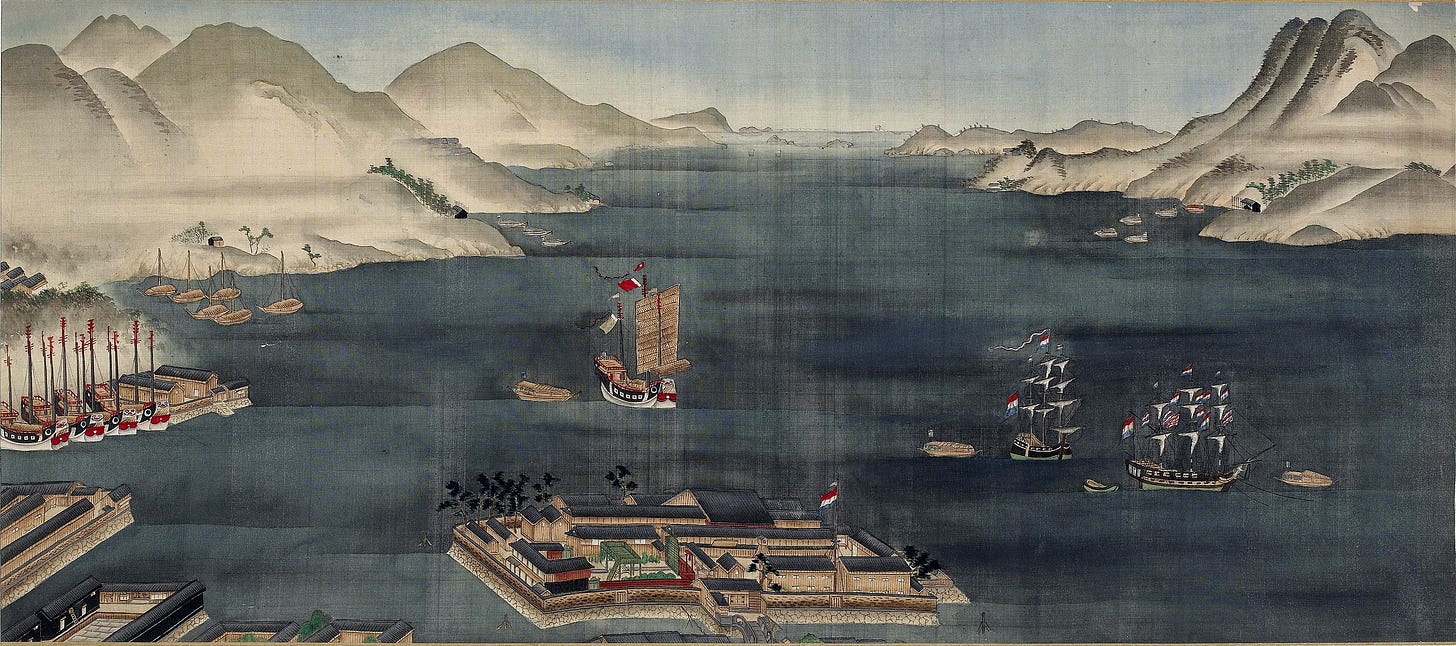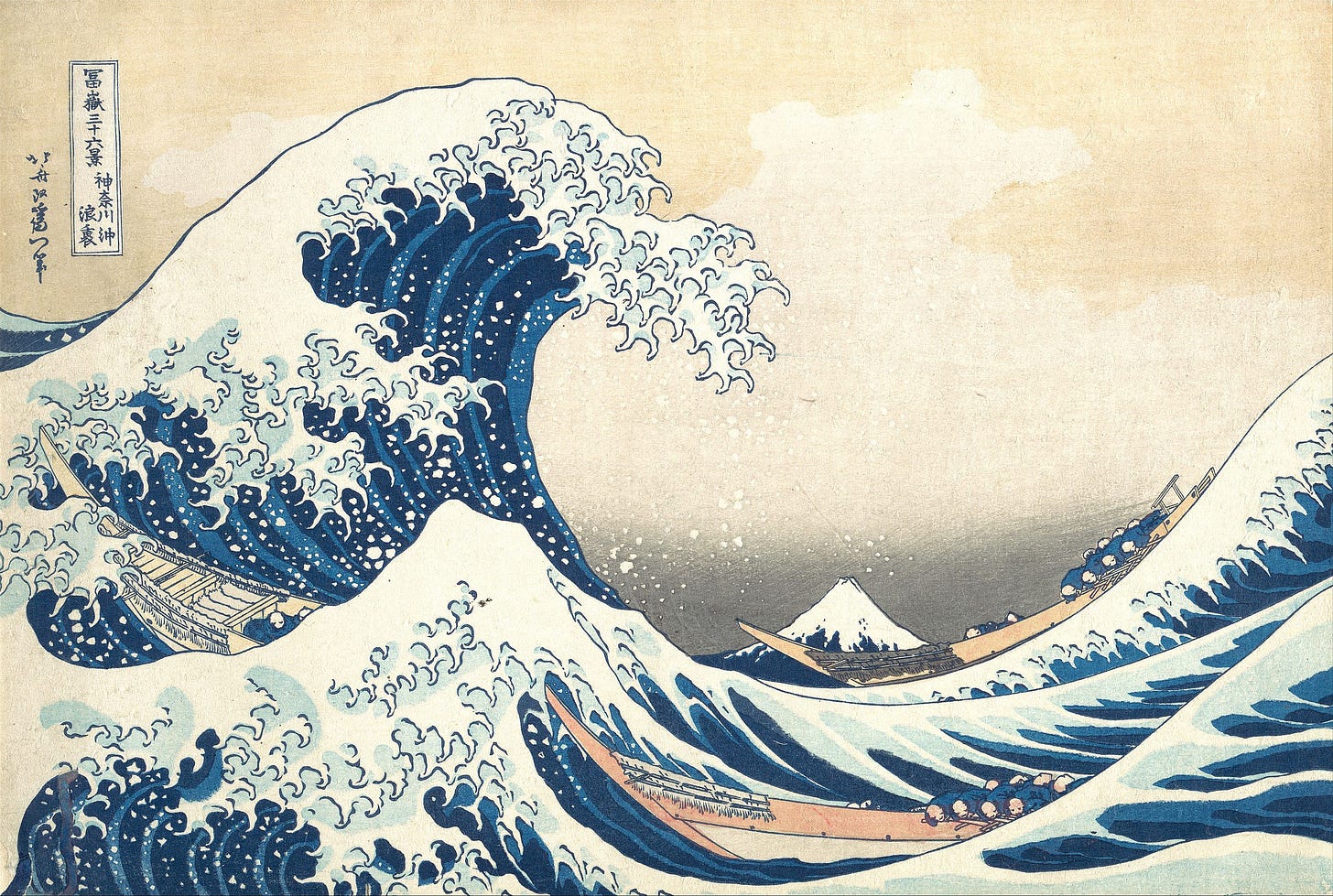Trains that run like clockwork. Hedgehog cafes. Capsule hotels. Ear-cleaning parlors. Vending machines that offer anything from manga to hot coffee to panties. Limited edition Kit Kats. The delicate craft of repairing broken pottery (‘kintsugi’). Rice paddy art.
Japan is without doubt one of the most popular tourist destinations. It is a deeply memorable place to visit because it’s different. It’s weird. It’s quirky. It’s beautiful, of course, but there are many things about Japan that are just unforgettably unique compared to the rest of the world. Why?
Japan is an island. Not just geographically, but also psychologically, culturally, and spiritually. And the more isolated something is, the more different it becomes.
This is true for all kinds of evolution—in fact, this is exactly what Darwin’s finches demonstrated: the greater the distance between two species, the more different they became. The common ancestor who arrived on the Galápagos a few million years ago no longer exists, but its genes can still be traced in every bird out of any one of the fifty-something species. As the mountains separated the birds from interacting with one another, the homogeneous population diversified. Each pocket evolved in its own way to adapt to a different lifestyle; for some, a blunter beak made feeding more efficient, for others, a longer tail attracted more mates. Overtime, one species became many unique species.
Similar to the finches, Japan’s idiosyncratic personality can be explained by their deliberate isolation—265 years of it to be exact. During the Edo period (from 1603 to 1868), relations and trade between Japan and other countries were limited. The practice of foreign religions—namely, Christianity—were prohibited. Nearly all foreign nationals were banned from entering Japan, and native commoners were kept from leaving the country. This isolationist foreign policy was known as Sakoku (鎖国, ‘locked country’).

Sakoku Japan is remembered as somewhat of a golden age. For 265 years, the Japanese lived in peace and considerable prosperity. Japan was known as the floating world, a place that was physically and spiritually separated from the default human experience (e.g., political conflict, plagues, poverty, and backbreaking labor). Life moved at a different pace in the floating world and people enjoyed themselves. With no access to foreign literature, commodities, or culture, the Japanese developed inside a vacuum; this gave rise to unique forms of creative expression such as the art of woodblock printing:

Today, we are seeing the opposite problem: we are over-connected. “Going offline” is a popular rhetoric that encourages one to put down their screens and go outside—but I argue that that’s not enough. The antidote to over-connection isn’t just logging off, it’s isolation.
“All of humanity's problems stem from man's inability to sit quietly in a room alone.” — Blaise Pascal
Grow your originality, be uninfluenced
We are more or less influenced by others at all times because we live in an interdependent world; our social conditioning comes from parents, peers, media, and society. We do not think as independently as we think we do. Our desires are mimetic—we imitate each other to know what is socially acceptable or good for our social status. We don’t have ideas, ideas have us.
Imagine what you’d be capable of—what you would be able to unlock and find within—if you had zero external influence. Who would you be if no one else was there to watch or react?
The point of being aware of where your desires and beliefs come from is so you can have agency instead of operating on autopilot. Navigate who you become with a sense of mission. Be deliberate about what you let in and out of your head. Live consciously and selectively. Push with conviction, don’t be dragged along by influences that you have zero belief in. Have strong preferences.
Sakoku is like geopolitical-cultural intermittent fasting, it’s a practice that has transformed a people to be creative and original beyond imagination. This is why I think that isolation would benefit one greatly on an individual level. How can you be different and stand out from the crowd if you’re always accompanied by the crowd?
If you want to be different, you need to grow alone. If you want to be innovative, you need to think alone. If you want to be novel, you need to work alone.
If you want to preserve and grow your originality, cut out foreign influences. The less disturbed your creative process is, the more unique you become. Put foreign trade on pause for a while—keep your ideas to yourself instead of exchanging them in conversations.
Let what grows inside stay inside, and see where it goes.
~
Sherry
If you enjoyed this article, check out these related topics:




I love this concept. Alone time is such a critical component of creativity!
I think the problem might be that if you are in a position where you have to tell yourself to have strong preferences, you will (probably) never have them...